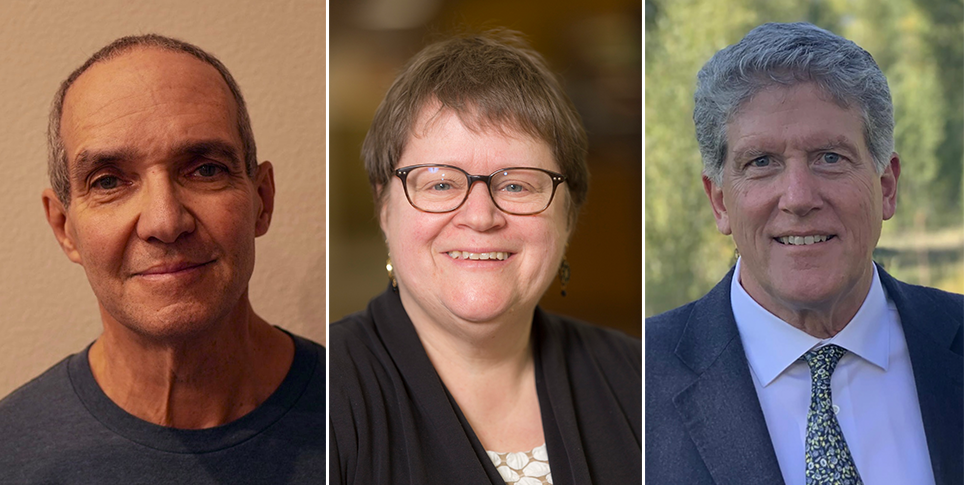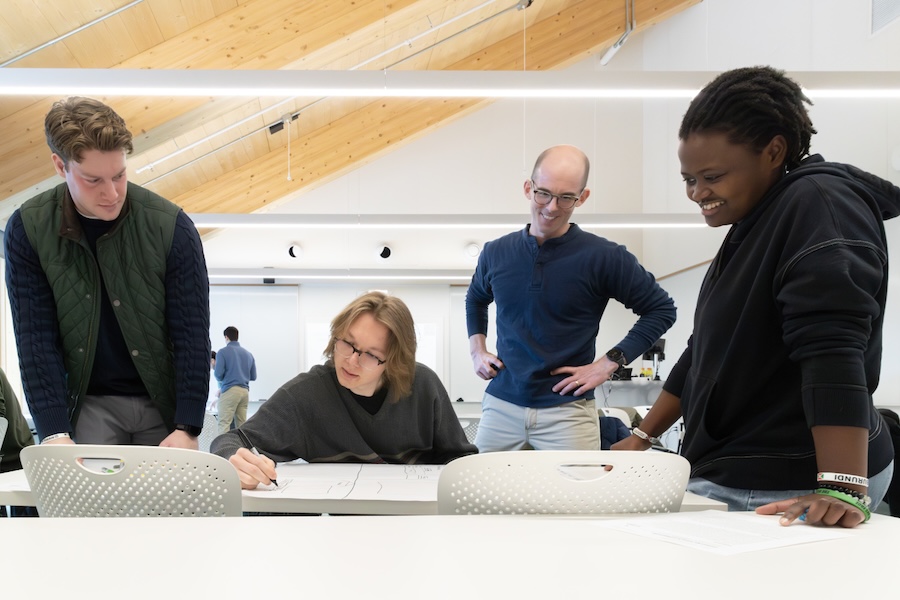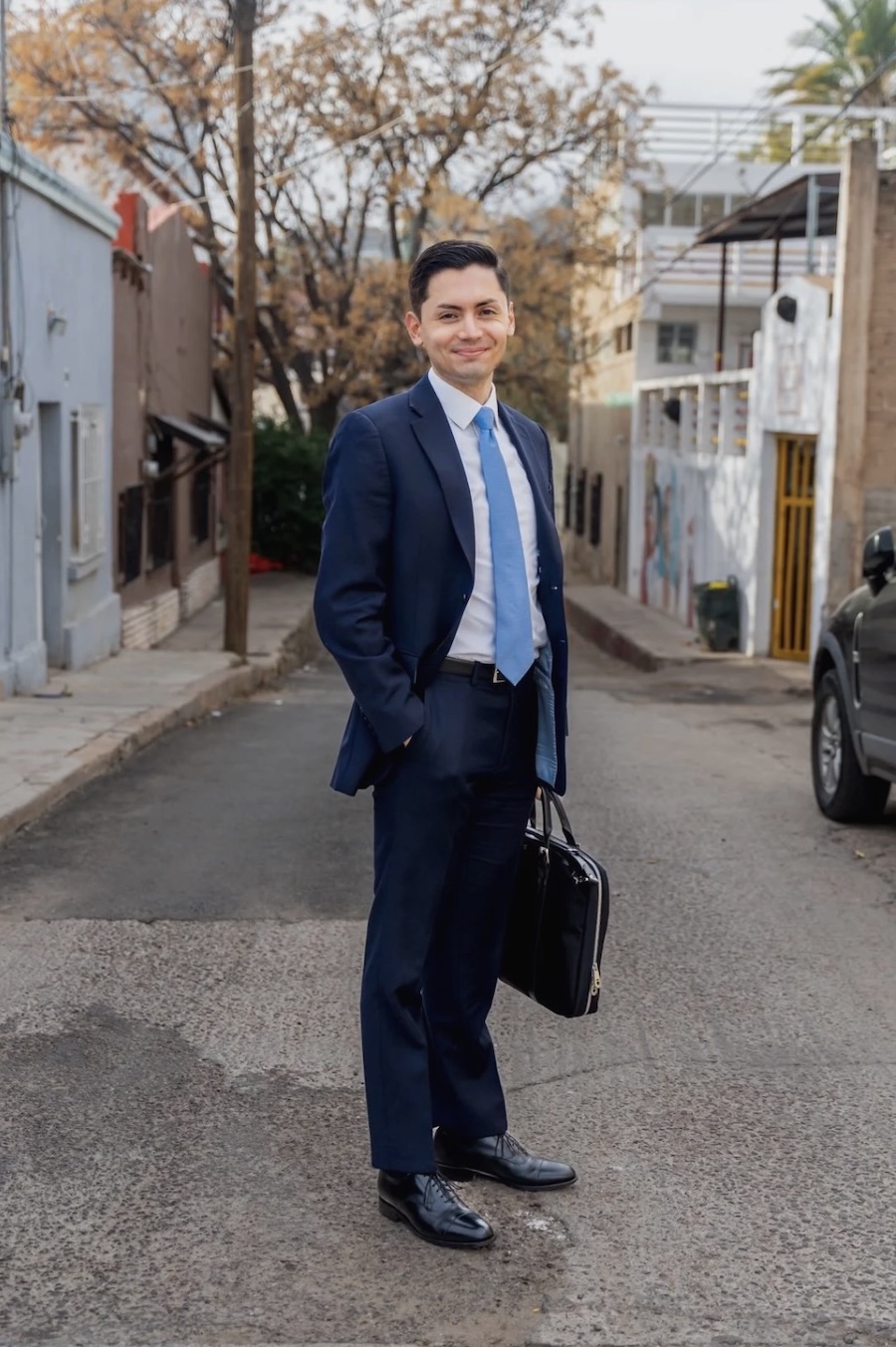Bowdoin Alumni and Students Jump into the Future of Fishing
By Rebecca Goldfine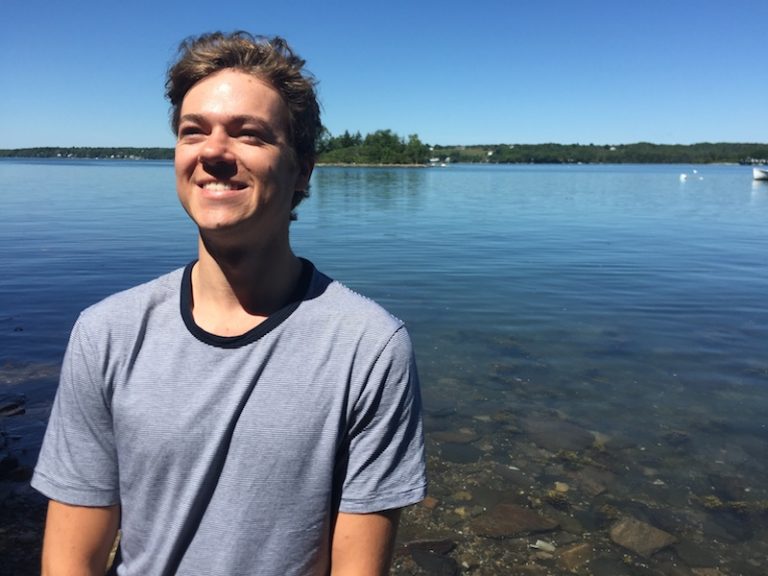
One student has even decided Bowdoin should have its own aquaculture farm — and he is building it this summer. Jack Fullerton ’19 points out that the College has the perfect location for an aquaculture operation, with ample shoreline along a protected bay. It has the basic necessities: a dock and boats. And it has an educational research center focused on the sea — the Schiller Coastal Studies Center — where students can learn about an industry that will play an increasingly important role in the state.
So this summer, Fullerton applied for and received a funded internship grant, the Annual Fund for Career Readiness, from Bowdoin’s Career Planning Center to set up a small seaweed farm, Bowdoin Ocean Farm, in Harpswell Sound. The funded internship program offered 78 selected students a stipend to pursue unpaid opportunities over the summer.
The inception of Bowdoin Ocean Farm actually goes back to last autumn when a team of four students — Fullerton, Eleanor Paasche ’20, Daniel Strodel ’20 and Natalie Youssef ’19 — pitched the idea of launching an aquaculture start-up during a entrepreneurial competition called the Maine Food System Innovation Challenge. They came in second place in the college division.
David Carlon, director of the Schiller Coastal Studies Center, is a strong backer of the project.
“It’s exciting,” he said. “We’ve been talking about doing this for a couple of years because it’s a natural fit for us.”
He added that having a working aquaculture business on site — one that actually grows food for sale — will give students the chance to study the industry through the lens of both economics and science. “Aquaculture is a really important part of the economy of Maine,” he noted.
Increasingly, the state’s remaining fisheries (including its most lucrative one, lobster) are threatened by climate change and overfishing. The uncertainty is pushing more people in Maine’s fishing industry to turn to aquaculture as a way to ensure reliable, year-round livelihoods and to sustain coastal communities that for generations have depended on the sea.
While there is still some concern about the growth of aquaculture in Maine — including from fishermen protective of their territory and coastal property owners anxious about their views — there is a growing consensus that traditional fishing cannot continue at its current levels. Public acceptance of Maine’s aquaculture industry is boosted by the fact that it is still largely limited to small operations of mussels, oysters, kelp, and scallops. These species have the benefit of being relatively inexpensive and easy to farm, and also good for the ecosystem.
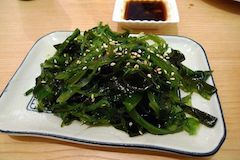
Bowdoin's kelp offerings:
- Carrot Kelp Soup
- Maine Kelp and Tofu Miso Soup
- Maine Sea Slaw with Kelp
- Sauteed Mussels with Shipyard Beer and Kelp Slaw
Plus, Fullerton added, “It’ll help drive the market for a product that is really good for the earth.” Kelp requires carbon dioxide to grow, so large patches of it can become efficient carbon sequesters, helping to remediate nearby ocean acidification caused by excess carbon dioxide in the water, and so lessening its harmful effects on shellfish. Though Fullerton plans to start by growing only kelp, he said he’d be happy to see Bowdoin Ocean Farm one day expand into mussels and other shellfish.
This fall, Fullerton plans to launch an aquaculture club for students. And after he graduates, the economics and English major said he’d like to pursue a career in the sustainable food industry. “I think there’s a lot of work to be done in the world today,” he said. “Our world needs help. And healthy and sustainable food is the most basic building block of a healthy society.”
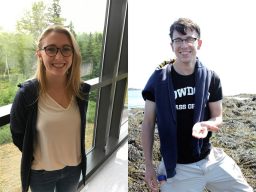
Each new class of students in the Bowdoin Marine Science Semester pursues independent research. Last fall, Marine Science Semester students Miranda Miller ’19 and Jesse Dunn ’20 investigated the productive symbiosis of growing kelp with shellfish, specifically mussels. Madeline Schuldt ’18 in 2015 began what would become her long-term honors project: studying a little-understood pathogen that can precipitate die-offs in farmed oyster populations. And Hugh Cipparone ’19, was hired as an intern for a University of Maine project, the Sustainable Ecological Aquaculture Network, to research local aquaculture issues.
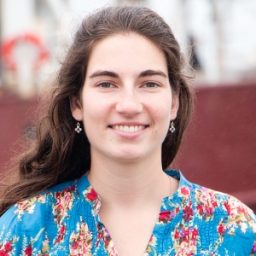
A couple of recent Bowdoin graduates — James Crimp ’14 and Julia Maine ’16 — are working for two important aquaculture players in Maine, the Island Institute in Rockland and the Gulf of Maine Research Institute in Portland. Both nonprofits are actively supporting the expansion of an aquaculture economy in Maine.
Crimp is the Island Institute’s marine business specialist, offering business and technical support to commercial fishermen who want to diversify their income stream with aquaculture. He also is helping to develop a market for edible seaweed.
He took the job in 2015 to address what he fears could be a looming environmental catastrophe. “As someone who has fished all my life and valued coastal communities and seafood, I knew that climate change had been changing people’s abilities to fish and will continue to do so in the future,” he said. He grew up in Alaska with a fishing family. “I am concerned that wild seafood fisheries won’t be viable in the future.”
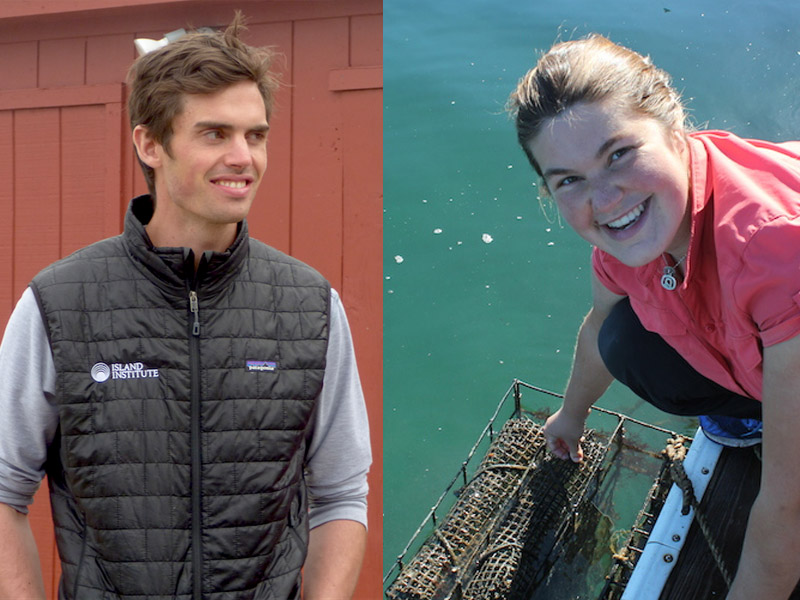
Julia Maine, the Gulf of Maine Research Institute’s aquaculture project manager, grew up on Chebeague Island in Maine, which has a strong fishing community.
“From an ecosystem perspective, what I am most worried about is how would climate change impact the community I grew up in, the people there? What will it look like without fishermen?”
Until last winter, Bailey Moritz ’16 was the nursery manager at Portland’s Ocean Approved, the biggest seaweed producer in Maine. The summer before, she worked for the Hurricane Island Foundation in Maine, setting up a four-acre scallop and kelp farm off Hurricane Island for research and education. “In 10 years, it’s going to be much more common for people to know about kelp farming and its uses,” Moritz said. “I just want to get on the boat while it’s taking off at its pivotal point, to get in with cutting-edge kelp growers and researchers doing work in a new industry.”
The work of these graduates will lead to more resilient communities in Maine, they said, while also giving them a chance to be involved with a quickly changing, fascinating, and challenging field. “I think what I am most interested in is problem solving with aquaculture and other types of things,” Maine said. “I am interested in delving into projects and finding solutions to problems.”
Crimp said he most appreciates his job’s combination of education and service, with the goal of helping people adapt to climate change. He also enjoys being out in the water and “in touch” with the Gulf of Maine environment. “It’s fun training all these farmers,” he added. “I think sometimes I would like to get in myself. So stay tuned!”




